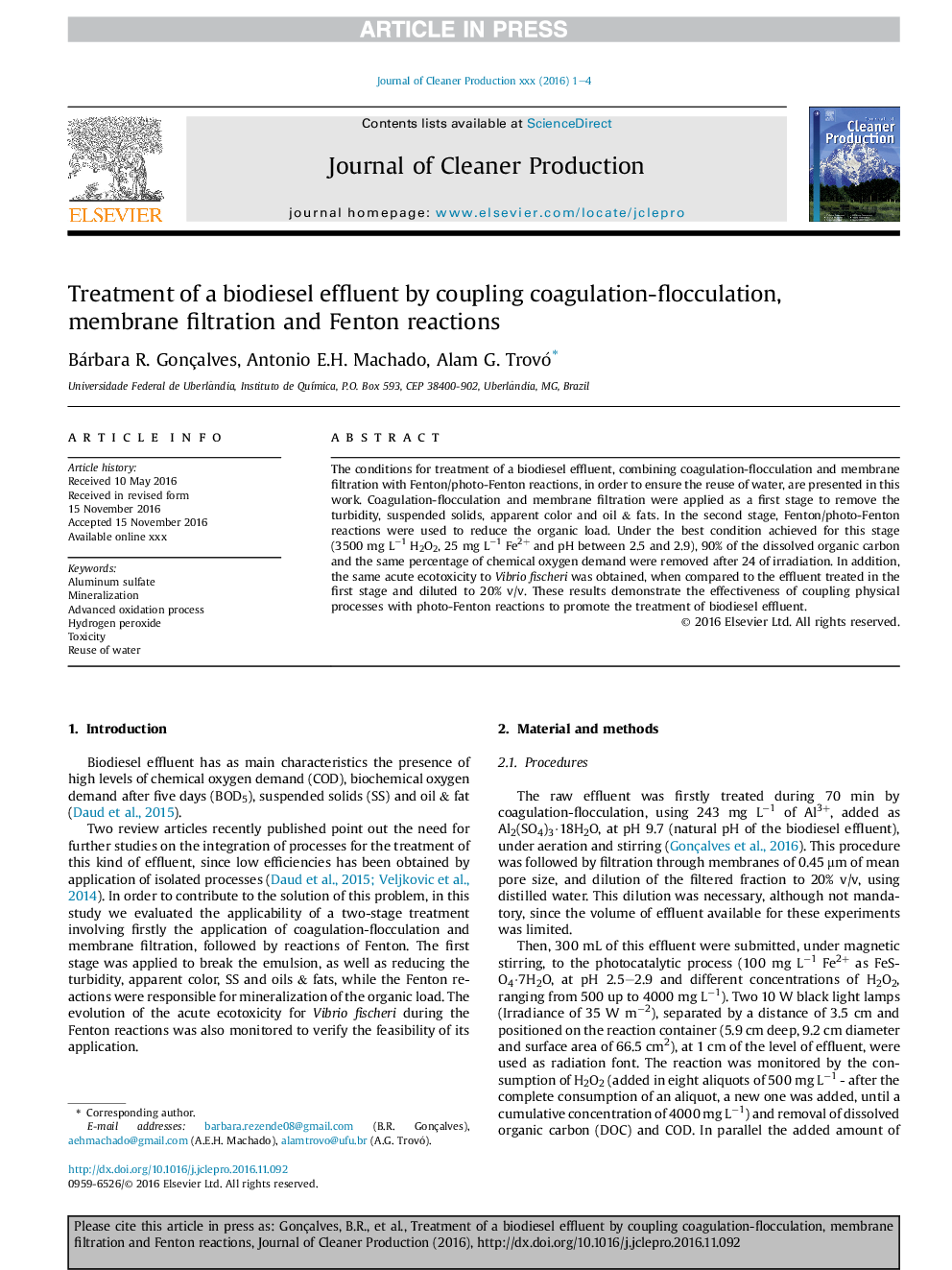| Article ID | Journal | Published Year | Pages | File Type |
|---|---|---|---|---|
| 5480364 | Journal of Cleaner Production | 2017 | 4 Pages |
Abstract
The conditions for treatment of a biodiesel effluent, combining coagulation-flocculation and membrane filtration with Fenton/photo-Fenton reactions, in order to ensure the reuse of water, are presented in this work. Coagulation-flocculation and membrane filtration were applied as a first stage to remove the turbidity, suspended solids, apparent color and oil & fats. In the second stage, Fenton/photo-Fenton reactions were used to reduce the organic load. Under the best condition achieved for this stage (3500 mg Lâ1 H2O2, 25 mg Lâ1 Fe2+ and pH between 2.5 and 2.9), 90% of the dissolved organic carbon and the same percentage of chemical oxygen demand were removed after 24 of irradiation. In addition, the same acute ecotoxicity to Vibrio fischeri was obtained, when compared to the effluent treated in the first stage and diluted to 20% v/v. These results demonstrate the effectiveness of coupling physical processes with photo-Fenton reactions to promote the treatment of biodiesel effluent.
Keywords
Related Topics
Physical Sciences and Engineering
Energy
Renewable Energy, Sustainability and the Environment
Authors
Bárbara R. Gonçalves, Antonio E.H. Machado, Alam G. Trovó,
